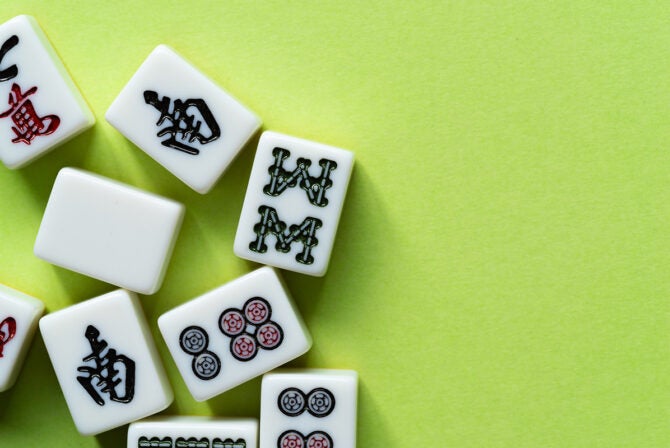Two years ago, I wrote about how happy I was that my daughter was nothing like me. She’s cheerful, affectionate, friendly, easy-going, resilient, and, as an added bonus, capable of going out into the sun without instantly burning to a crisp.
But, as it turns out, there is one way in which she is like me.
The problems started last year, when her second grade teachers observed that, despite her advanced vocabulary (the other kids nicknamed her “Human Dictionary”; my daughter, of course, took it with the genuine affection intended), her writing was lagging behind where it should be. She had no apparent grasp of punctuation, would capitalize letters in the middle rather than the beginning of words, and skipped entire words altogether in her sentences. They sent her to the school’s reading specialist, who declared that there didn’t appear to be any diagnosable learning problems.
Cut to third grade. The first alarm was raised by her Hebrew teachers. It seems that my daughter does not care for vowels. She agrees they exist, can identify them under duress, but does not care to pay them any mind while reading.
Next came the call from the reading teacher. My daughter can’t read. This surprised me, as she has just finished the “Percy Jackson” series and moved on to “Harry Potter.” Our morning walks to school are filled with her breathtaking recaps. If my daughter wasn’t reading, but, in fact, making up these stories herself, we shouldn’t be worried, we should be monetizing it!
No, the teacher explained, she meant that, because my daughter had such a strong sense of how stories worked, she was figuring the plot out from context.
Finally came math. My daughter’s school uses the Everyday Math curriculum. It focuses on teaching students multiple strategies for solving the same problem. The idea is to get them thinking broadly and understanding that there is more than one way to reach an answer. In my daughter’s case, she has combined all the strategies into a single hodge-podge. At best, she’ll lay the problem out correctly, but then promptly copy the numbers down wrong.
Time to talk to the learning specialist again!
I listened carefully to everything she said. And I agreed with everything she said.
Because the student she was describing was me. Exactly.
When I told the learning specialist this, she said, “That’s wonderful! So you can share your coping strategies with her!”
What coping strategies? I’m 46 years old, and I’ve got no coping strategies. At best, I have work-arounds. (When my parents were told more or less the same thing about me 30 years ago, my father explained, “No, she is not learning disabled, she is just lazy. We will make her work harder.”)
The other day, my daughter (who loves to play teacher; the academic set-backs haven’t dimmed her affection for school one bit) brought out two copies of the same book. She, as the teacher, would read it out loud and I, as the student, would read along. It was the first time we’d ever done something like that. And that’s when I realized that my eyes were tracking in exactly the same way hers were.
We both stop when we reach the point of the sentence and skip to the next one. For example, we’d both read, “Jimmy jumped out of the tree” and, having gotten the point, moved on, disregarding the second half, which might be, “landing with a thump and wiping his brow as he moved to take a sip of water from the well.” Jimmy jumping out of the tree is what matters. The other details are superfluous!
And then there’s the math. My mother never understood how she could sit with me for hours, painstakingly making sure I got through 20 problems using the same formula without error… only to find, the next day, that I had no memory of the formula or how to use it. So we did it again. And again. And again.
My way of reading has never caused a problem, and even though my daughter’s teachers are keeping her from reading books they believe to be above her level, I’ve told her she has my permission to read any book she wants outside of school.
My lack of math skills, on the other hand, is a lifelong problem. Which is why, even though my daughter’s school has been wonderful, giving her extra support in Hebrew, reading, and math, I’m taking my own proactive approach.
My daughter is having trouble memorizing her math facts? I’m going to drill her in math facts. Yes, I write about education, I’m familiar with the literature about the drawbacks of “kill and drill,” about how children should be taught to understand the underlying mathematical concepts without worrying about rote calculation. My husband is a math and physics teacher. He teaches advanced algebra to students who can’t subtract or multiply. He calls these “gopher holes of knowledge.” I call it, “I don’t want to drive over a bridge designed by an engineer who understood the concept of suspension, but grossly overestimated how much weight it could bear.”
So every day after school, I generate a math test for my daughter. And every problem she gets wrong, I make her write out five times. Afterwards, I give her a spelling test on the week’s words. And every word she spells wrong, I make her write out five times. It takes 20 minutes total. Or, it would, if we took out the whining, stalling, and explaining why it really isn’t necessary, she totally already knows all of it.
In response to her whining and stalling, I tell her sometimes you have to do boring things so you can get to the fun stuff. You learn the alphabet before you can read. In gymnastics, which my daughter currently takes, you have to learn the fundamentals before you can do the big tricks. In math, you have to muscle through the rote drills before getting to the fun problems (to keep her enthused, we’ve gotten her books of puzzles and logic games, which she enjoys and does independently).
It’s not exactly progressive, it’s not child-centered, and it’s not the current preferred pedagogic method.
But it works.
Because, in this one way, it turns out my daughter is exactly like me.
Read More:
Jewish High School or Public School? I’m Letting My Daughter Decide
Opening Up About My Son’s Suicide
7 Female Celebrities You Probably Didn’t Know Are Jewish







